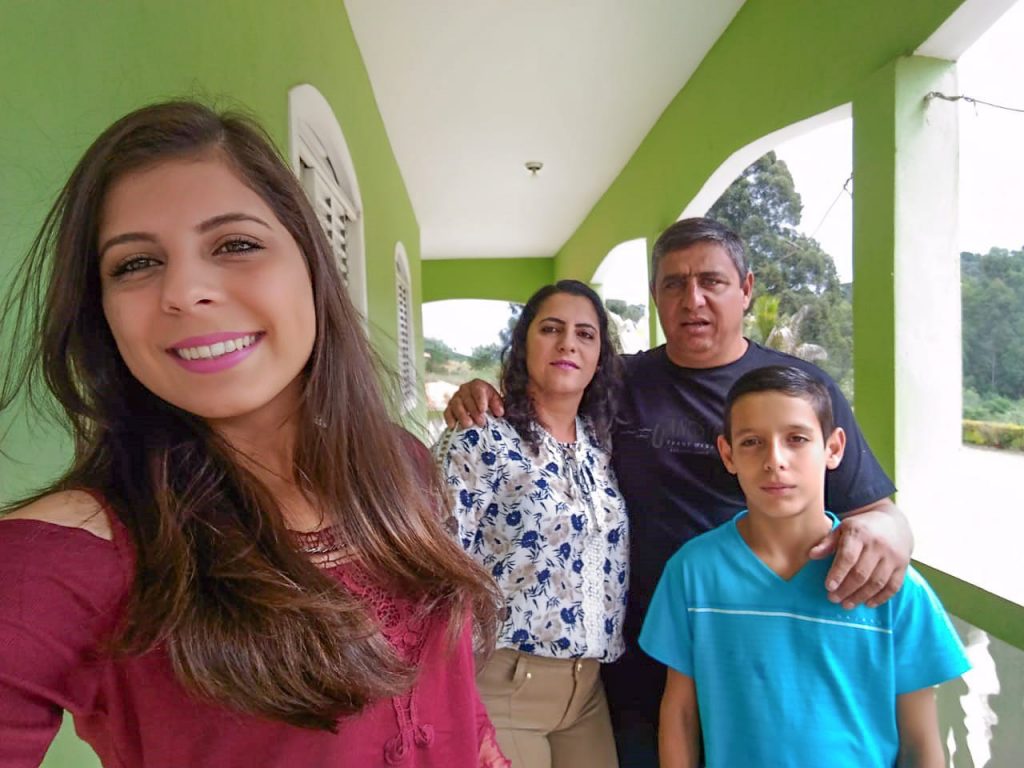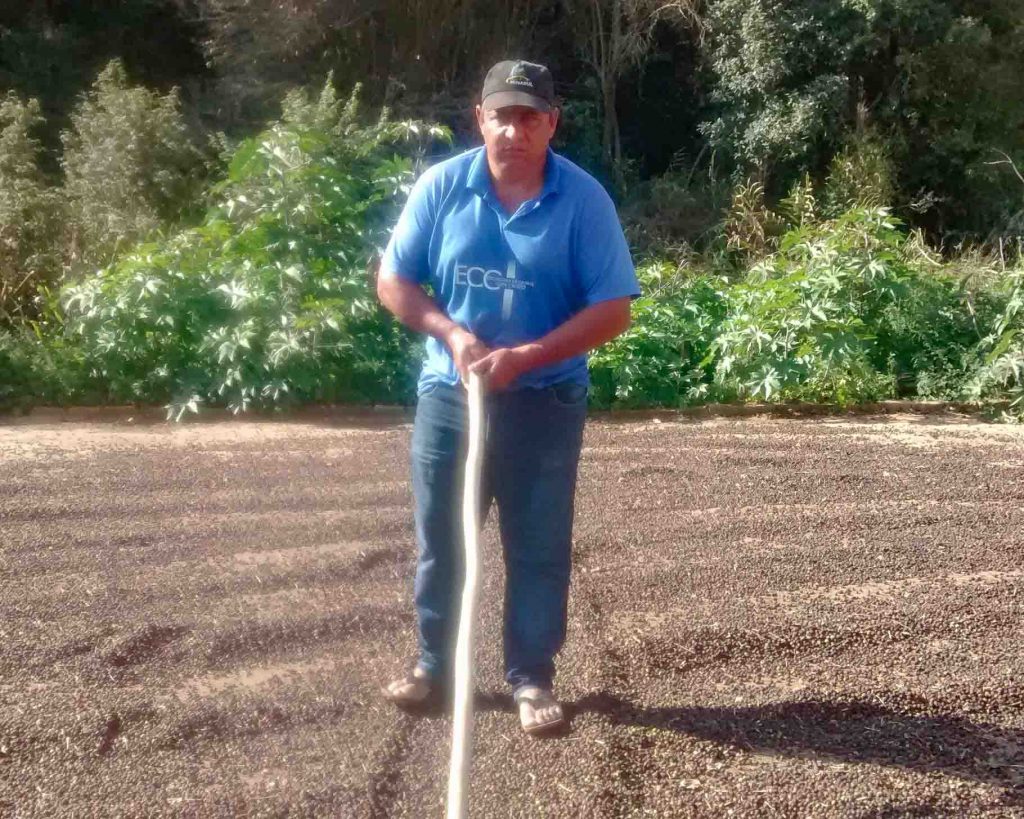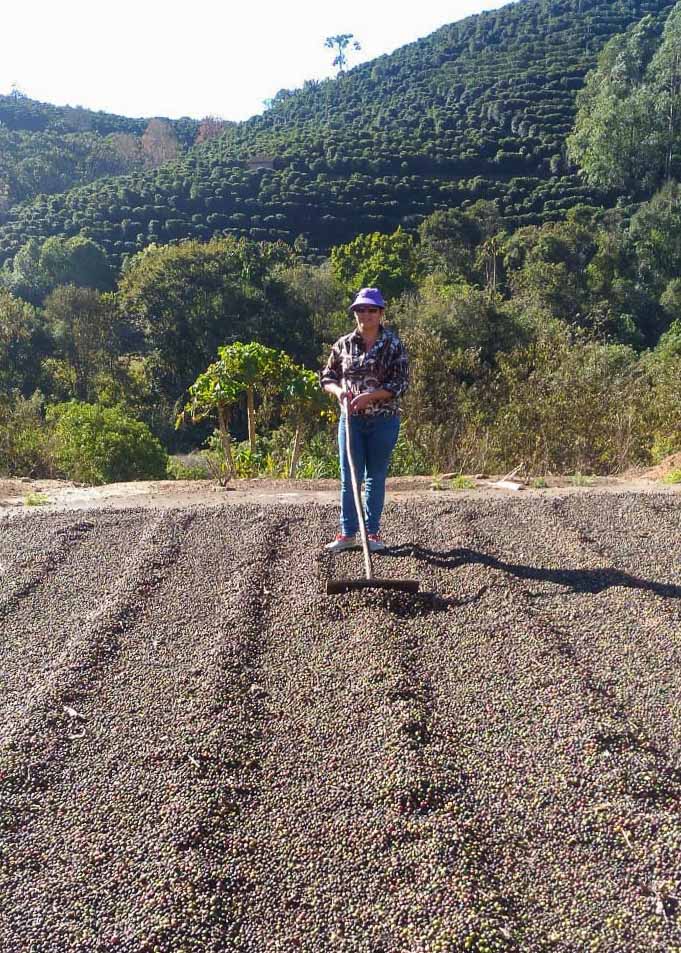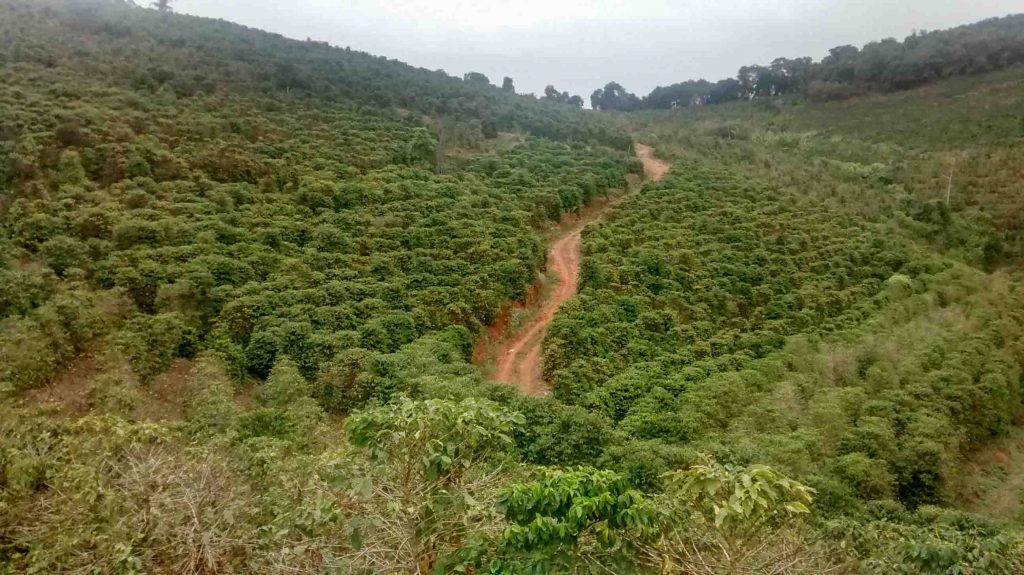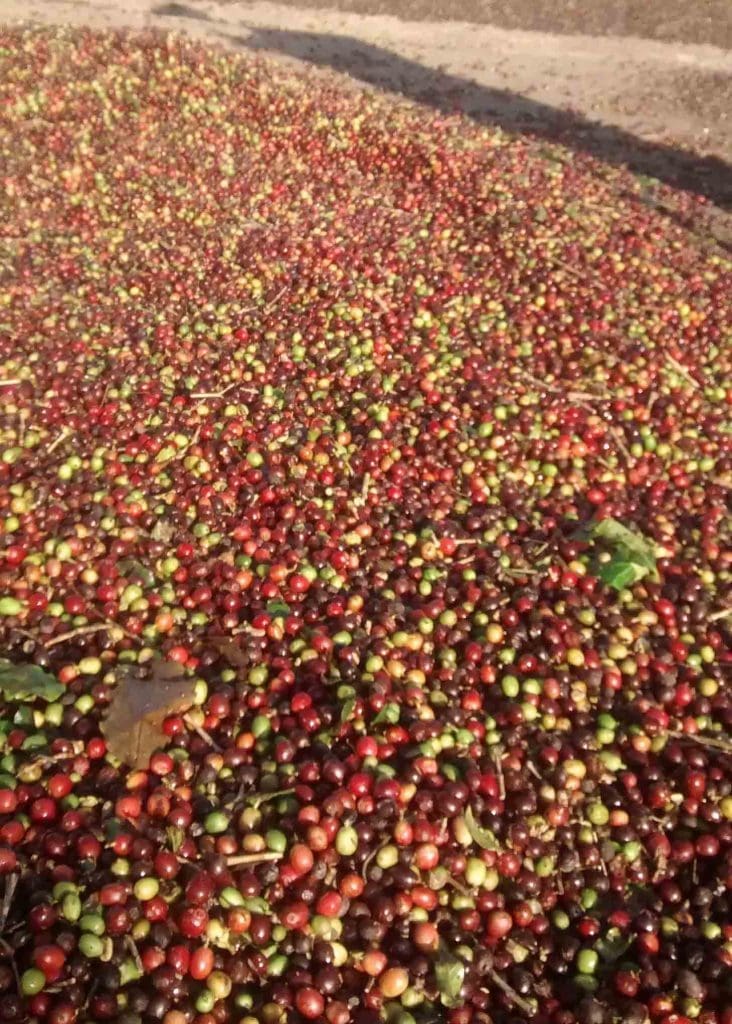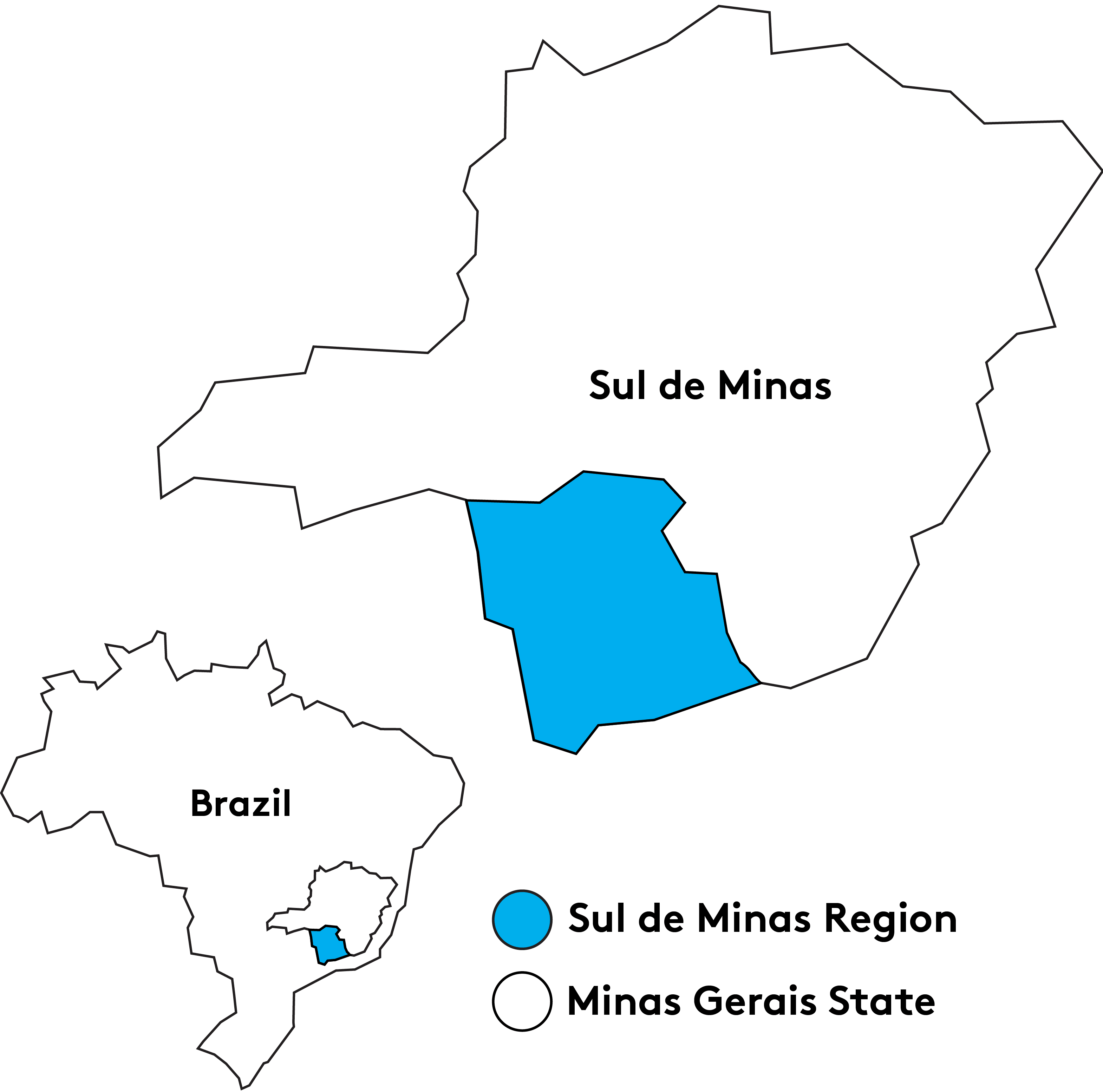Marco Antônio Pereira is the second generation of coffee producers in his family, following in the footsteps of his father, who was always dedicated to coffee cultivation. Marco Antônio’s passion for coffee growing was born learning from his father and from there he followed his own effort and dedication to buy his own farm, Sitio Recanto da Floresta in Lambari, Minas Gerais, located in the Mantiqueira de Minas coffee region of Sul de Minas.
Today, the tradition continues with teaching his wife and sons, who are also passionate about the art of cultivating coffee. All the processes on the farm are carried out by the family’s own hands. Every day Marco Antônio is more invested in achieving his dream of producing quality coffee. To be recognized for his work is the best motivation to keep looking for better ways to grow.
10 of the farm’s 12 hectares are planted with Red and Yellow Catuai and Mundo Novo Arabica coffee trees, which yield an annual production of around 350 bags.
